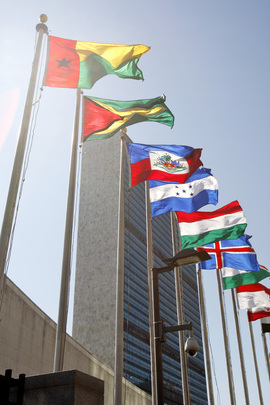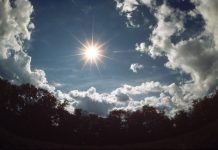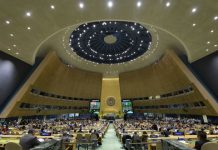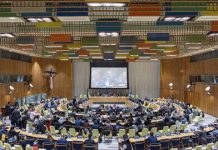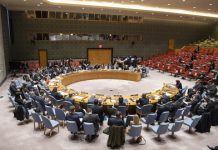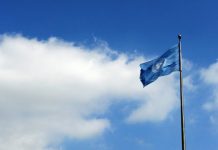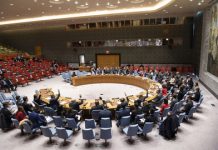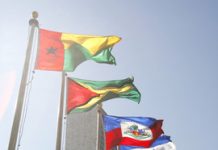She knows what it’s like to be silenced.
Born into a family that didn’t believe in educating girls, she had to stay home while her brothers went to school. Only when she moved to Khartoum with her uncle did she get a chance to study, though not for long.
“I was forced into marriage at 14,” Awrelia said. “Even before then, some relatives scolded me just for going to school. I fought to finish primary school, but I couldn’t go any further.”
Even so, she never gave up on the value of education – especially for her daughters. “I hope they grow up to be responsible and successful women leaders. Something has to change for girls.”
Awrelia at home in Wau.
Widowed mother of eight
In South Sudan, where conflict and deeply entrenched gender norms have shaped life for generations, change comes slowly – yet women like Awrelia are leading it with courage and determination.
A widowed mother of eight, she has spent years raising her children alone, often under difficult and uncertain conditions.
“Their father died when they were very young. My eldest was still in primary school,” Awrelia recounts. “I’ve been raising them alone ever since.”
In her daily life, Awrelia constantly navigates complex family dynamics, scarcity, and stigma, but she keeps going. “People expect us to endure silently. Even when women try to seek help, no one responds.”
In public spaces, the challenges are even greater. Speaking ahead of the International Day for the Elimination of Violence Against Women marked annually on 25 November, Awrelia described how women are often dismissed or ignored. “They say we’re just women, as if our voices don’t matter,” she said. “I kept quiet for years because I was afraid to speak up.”
Nearly 1,400 women across South Sudan have benefitted from leadership training.
Transformative training
But even before she spoke out, Awrelia was leading in her own way – fighting for her children’s education and holding her family together. That strength deepened when she joined a women’s leadership training organized by the International Organization for Migration (IOM) in Wau.
The training is included in IOM’s gender-transformative recovery programme – part of a broader, locally led effort to strengthen women’s leadership and ensure their participation in community decisions.
Across South Sudan, women’s groups and grassroots movements have long been laying the groundwork for change. The five-day course builds on that momentum, offering women a safe space to reflect, learn, and grow together.
I learned that being a leader means treating others fairly and solving problems with patience. The training gave me courage to stand up for myself. Now I know I can lead.
“I learned that being a leader means treating others fairly and solving problems with patience,” she said. “The training gave me courage to stand up for myself. Now I know I can lead.”
Back in her community, she put her new confidence into action. Her local women’s group had nearly collapsed, but she brought it back together. Now they meet regularly to support one another and share their challenges.
Though they lack funding for income-generating activities like sewing or catering, the group offers something equally powerful: solidarity.
Women run households
In many displacement-affected areas of South Sudan, women head up to 80 per cent of households.
In Wau, Bentiu, Malakal, and other areas where IOM runs the programme, more women are stepping forward. Those who once stayed silent now speak up at meetings, support survivors of violence, and build networks to share experiences and grow together.
Awrelia has noticed a change in how she is perceived. “People recognize me now,” she said. “During a meeting with chiefs and women leaders, they mentioned my name and honoured me in front of everyone. It made me feel proud. The women I lead respect me, and I respect them.”
From homes to community halls, women like Awrelia are finding their voices and reshaping what the future can look like – for their daughters, their families, and their country.
Source of original article: United Nations (news.un.org). Photo credit: UN. The content of this article does not necessarily reflect the views or opinion of Global Diaspora News (www.globaldiasporanews.net).
To submit your press release: (https://www.globaldiasporanews.com/pr).
To advertise on Global Diaspora News: (www.globaldiasporanews.com/ads).
Sign up to Global Diaspora News newsletter (https://www.globaldiasporanews.com/newsletter/) to start receiving updates and opportunities directly in your email inbox for free.


